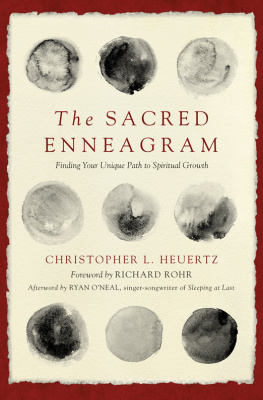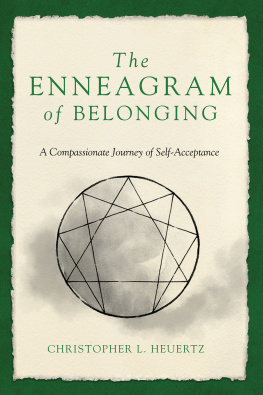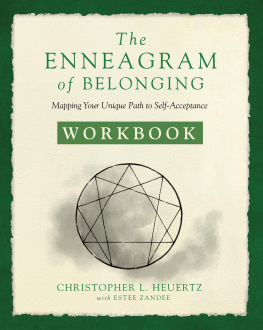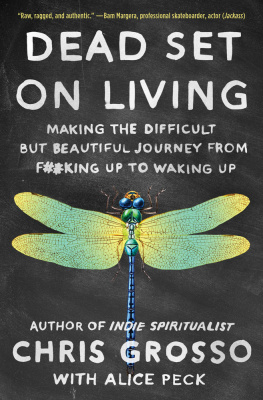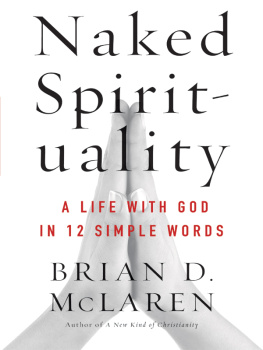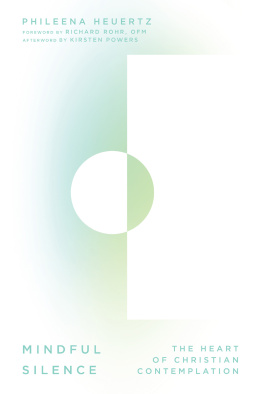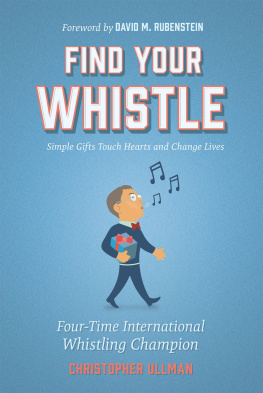Christopher L. Heuertz - Simple Spirituality: Learning to See God in a Broken World
Here you can read online Christopher L. Heuertz - Simple Spirituality: Learning to See God in a Broken World full text of the book (entire story) in english for free. Download pdf and epub, get meaning, cover and reviews about this ebook. year: 2009, publisher: InterVarsity Press, genre: Religion. Description of the work, (preface) as well as reviews are available. Best literature library LitArk.com created for fans of good reading and offers a wide selection of genres:
Romance novel
Science fiction
Adventure
Detective
Science
History
Home and family
Prose
Art
Politics
Computer
Non-fiction
Religion
Business
Children
Humor
Choose a favorite category and find really read worthwhile books. Enjoy immersion in the world of imagination, feel the emotions of the characters or learn something new for yourself, make an fascinating discovery.

- Book:Simple Spirituality: Learning to See God in a Broken World
- Author:
- Publisher:InterVarsity Press
- Genre:
- Year:2009
- Rating:5 / 5
- Favourites:Add to favourites
- Your mark:
- 100
- 1
- 2
- 3
- 4
- 5
Simple Spirituality: Learning to See God in a Broken World: summary, description and annotation
We offer to read an annotation, description, summary or preface (depends on what the author of the book "Simple Spirituality: Learning to See God in a Broken World" wrote himself). If you haven't found the necessary information about the book — write in the comments, we will try to find it.
Christopher L. Heuertz: author's other books
Who wrote Simple Spirituality: Learning to See God in a Broken World? Find out the surname, the name of the author of the book and a list of all author's works by series.
Simple Spirituality: Learning to See God in a Broken World — read online for free the complete book (whole text) full work
Below is the text of the book, divided by pages. System saving the place of the last page read, allows you to conveniently read the book "Simple Spirituality: Learning to See God in a Broken World" online for free, without having to search again every time where you left off. Put a bookmark, and you can go to the page where you finished reading at any time.
Font size:
Interval:
Bookmark:
On Sight, Spirituality and Stones
As soon as Safi entered the room, I knew there was something amazing about him. Although he cant see, he perceives more than most people ever will. He grew up in an orphanage in Kolkata (formerly Calcutta), India. I met him around Christmas when he was eleven years old. A family in the United States had just adopted him, and he was soon leaving for his new home. That night he was saying goodbye to some dear friends.
The first time he heard me speak, he immediately asked in his high, spunky voice, Whos that? As if he could see exactly where I stood, he boldly crossed the room and walked right up to me.
Safi made me feel like family. So warm, so friendly, so kind. I was amazed throughout the evening as I watched him interact with the group. He knew everyone in the room, and when someone spoke to him, Safi would walk right over to where the voice was coming from and start up the liveliest conversation.
That night we came together as a community to share a meal. After dinner someone took out a guitar and started playing. Safi loves music and made a beeline to the guitar. He leaned his head against the base of the guitar and started strumming along as my friend played the chords. It was astonishing to watch this little guy play the instrument like a pro. We all sat in awe of his performance.
Later that evening, we dimmed the lights, a few candles were lit, and the fourteen people present gathered in a circle to pray. The room was still until Safi suddenly chirped, Wheres Chris? Quietly, I answered, Over here. With poise he walked right up to me.
Safi held everyones attention as he spoke to us of prayer. His thoughts on prayer were profound, and his confidence that God would answer them humbled me. I believed Safis faith could move mountains.
I asked Safi, What should we pray for? What do you want?
He didnt even pause to think. I want to see.
In the dim candlelight, every one of us tried to hold back the tears as this childs faith convicted us. He turned to me and asked, What do you want? My heart sank inside me. What could I say? My voice cracked as I softly and slowly replied, I also want you to see. Tears rolled down my cheeks.
With that, Safi led us in prayer. Jesus, give me the eyes!
begging for sight
Mine is the story of a blind man receiving sight. I have the physical eyes that Safi longs for, but I often dont know how to use them.
My story begins when I was a university student. I had decided to spend the summer between my junior and senior year traveling through Asia, volunteering for organizations that worked among the poor. After making stops in Korea, Malaysia, Singapore, Thailand, Nepal and Bangladesh, I arrived in South India and eventually made my way north to Kolkata, finding my way to the convent where Mother Teresa was living.
I stood outside and apprehensively knocked on the door. A young nun greeted me and welcomed me inside. I explained my desire to volunteer for the next seven weeks, and she graciously put me to work. I was sent to Nirmal Hriday , The Place of the Pure Heart.
Nirmal Hriday , commonly known as The House for the Dying, was the first home opened by Mother Teresa and the Missionaries of Charity. Its a sort of communal hospice, bustling with activity as nuns and volunteers serve side by side to bathe, feed and comfort their guests. Since 1952, Nirmal Hriday has welcomed nearly 100,000 men and women, offering them dignity and love as they pass from this life into the next.
A simple building, the House for the Dying shares a wall with the Kali temple, dedicated to the Hindu goddess of death. In this strange corner, death is both worshiped and mourned. In one sacred space, goats are sacrificed on a daily basis (not to mention the rumor that infants are still offered as human sacrifices to Kali). In the other sacred space, death is grieved and
The home is surrounded by the hustle and bustle of Kolkatas crowded streetsstreets filled with people begging, looking for spare change and digging through the trash. As I entered the home for the first time, I could never have prepared myself for how my life was about to change.
Before I reached the top of the three small stairs leading to the door of Nirmal Hriday , my ears were flooded with soft cries, moans and coughsa literal cacophony of miseryfrom those dying just beyond the door. I was immediately overwhelmed before even stepping foot into the home. Once past the threshold, my eyes adjusted from the intense Indian sun to the dimly lit room. The initial images that met me were the most heartbreaking I had ever seen.
The home consists of two wards, one side for the men and the other side for the women, each with fifty beds. Before me were men of all ages, dying bodies barely covering their souls. By their appearance many actually seemed healthy, but many more were emaciated, dehydrated, wasting away and starved. The grievous sight was accompanied by a nameless odor, maybe the smell of death. In this place, the living resembled the dead, many looking like corpses awaiting burial.
The imminence of death, however, was muted by the celebration of life. Many of the men sitting in their beds raised their hands, palms together in the typical gesture of respect to welcome me. The tender touch and love radiated by the nuns reminded me that God is often nearest to those who seem the furthest from God.
I was just a student. Up to this point I had lived a fairly protected and sheltered life. I could not believe my eyes. I could not imagine any other place on earth where one would find such graphic and explicit human suffering complemented with a presence of Gods peace and tranquility. The home had a contemplative tone about it, as though the presence of Christ himself filled the space. The golden sunlight pouring through the windows, the quiet, the prayerful way the nuns and volunteers cared for those dying all contributed to a real sense of hope.
I introduced myself to the head of the volunteers, an animated German man named Andy. After a few conciliatory words of welcome, he pointed to four dead bodies stacked beside the doormere skeletons wrapped in pure white sheets, except one that was drenched through with blood and had attracted a swarm of flies. Time seemed to stop. I stood there blinkingtrying to comprehend what I was looking at. Abruptly Andy told me to help carry the bodies outside and place them in an ambulance.
As I carried the stiff and weightless corpses, the blood left a red trail and a stench that was nearly unbearable. The bodies were loaded onto the vehicle and taken to a Hindu temple where they were to be cremated.
During those first seven weeks at the House for the Dying, I attended to nearly fifty dead bodies. Although I have been back many times since my first visit in 1993, I have never become accustomed to the suffering. I have never gotten used to death, no matter how predictable and inevitable it may seem.
One day I came in early to help wash the dishes from afternoon tea. I was the only volunteer present as two men brought an older man to the home on a stretcher. They had found him at the train station in awful shape. He was a Muslim, maybe in his sixties, and very sick.
I brought him to the washroom at the back of the home and began giving him a bath. He was so malnourished and weak that he could not sit up properly, so I leaned him against the corner of the bathroom and began washing his hair. It was matted and full of lice. I had to shave his head and his long beard. As I washed his face, I noticed he was blind. His eye sockets were full of thick mucus, and every time I tried to wash them he cried out in agony.
After washing his body, I tried to wash his feet, but one of them was mutilated and covered with decaying skin. It is likely that while the man was lying on the train platform, a dog or some rats nibbled away at his toes, leaving the insides of his flesh exposed. What was left of his foot was full of maggots, eating away at the infection that was festering within his open wound. I did what I could to clean his foot, but picking at the worms with a pair of tweezers was ineffective; it would take several days to get rid of them all.
Font size:
Interval:
Bookmark:
Similar books «Simple Spirituality: Learning to See God in a Broken World»
Look at similar books to Simple Spirituality: Learning to See God in a Broken World. We have selected literature similar in name and meaning in the hope of providing readers with more options to find new, interesting, not yet read works.
Discussion, reviews of the book Simple Spirituality: Learning to See God in a Broken World and just readers' own opinions. Leave your comments, write what you think about the work, its meaning or the main characters. Specify what exactly you liked and what you didn't like, and why you think so.

